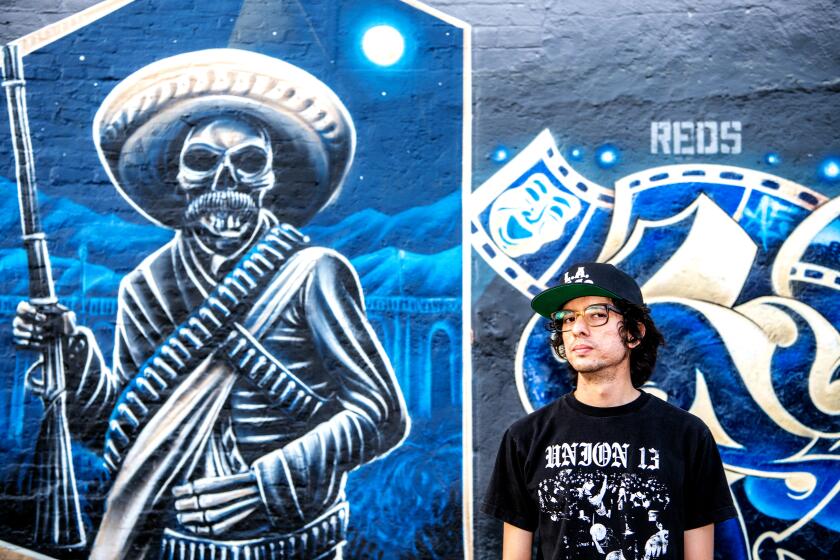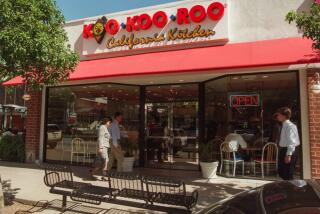KPCC is changing its name to LAist 89.3
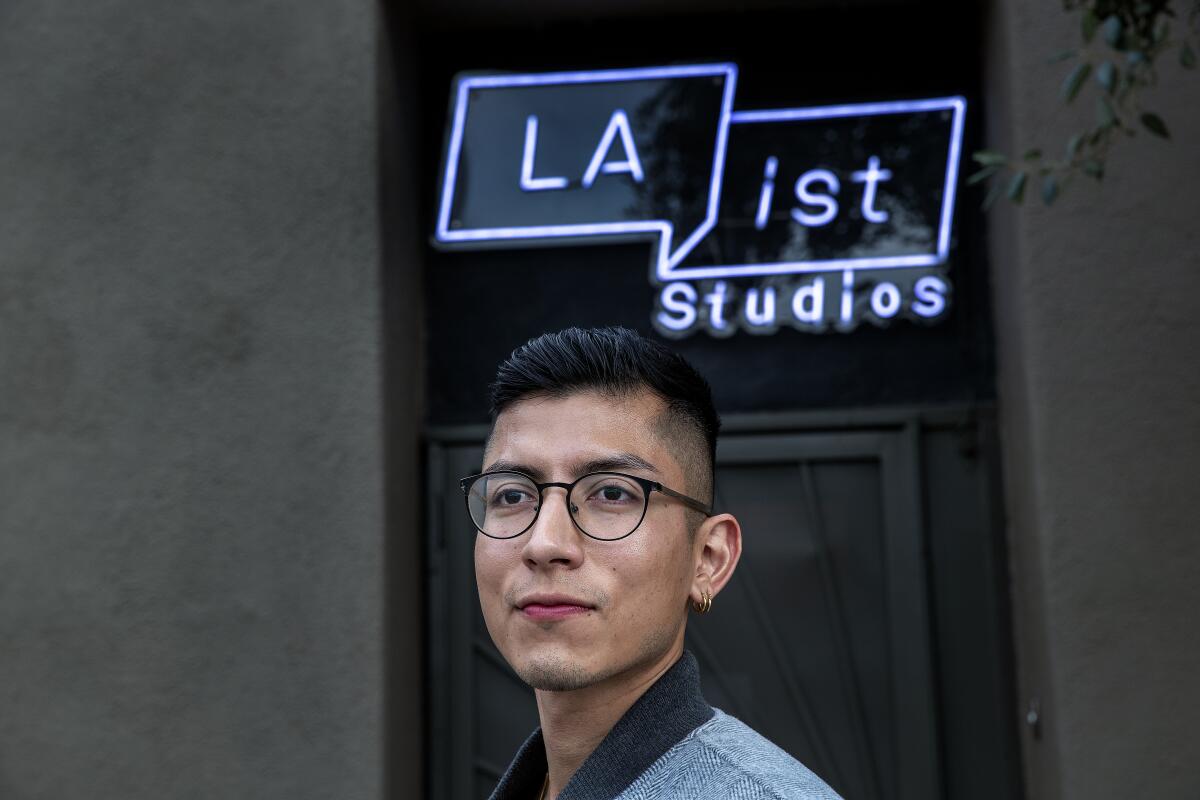
- Share via
Don’t touch that dial! You’ve still got the right channel.
Los Angeles’ most popular FM public radio station, KPCC, will rename itself LAist 89.3, the station’s management announced Tuesday.
The on-air change, set to take effect in the coming weeks, is part of a broader move by the station’s Pasadena-based operator, Southern California Public Radio, to consolidate its radio, podcast, digital and events offerings under the LAist name (pronounced EL-EY-ist) going forward.
The new name for the broadcaster’s flagship radio channel will be the biggest change noticed by loyal KPCC listeners, who can still expect the same mix of national NPR programming, local news reports and on-air personalities like Larry Mantle.
Southern California Public Radio president and CEO Herb Scannell hopes the move will end years of what he called “brand confusion” at Southern California Public Radio, which touts a staff of around 200 and more than 600,000 cumulative on-air listeners. Until now, its journalists identified themselves as working for both KPCC and its sibling website and digital brand, LAist, which the broadcaster acquired in 2018.
“LAist kind of says what we’re about,” Scannell said. “We’re L.A.-centric. We serve greater L.A. If you’re an ‘LAist,’ you’re an enthusiast of L.A. You want some guidance on how to navigate L.A. — a big sprawling city, right? You want to be connected to other people, and you want to discover things in L.A.”
Scannell said the decision was informed by audience testing. “Ironically enough the awareness for both KPCC and LAist was not high, but people thought they actually knew LAist more,” Scannell said.
Asked if he was expecting any pushback to the name change, Scannell said: “You don’t know until you find out. Somebody may really be attached, and it was what they always had. Others will be like, ‘What took you so long?’”
The LAist name change will also apply to Southern California Public Radio’s other radio channels across the region, which will be known as LAist 89.1 KUOR (broadcast from Redlands), LAist 90.3 KVLA (Coachella), LAist 89.9 (Santa Barbara) and LAist 89.5 KJAI (Ojai).
The classic four-digit call letters for KPCC and the other stations won’t completely disappear. Under federal regulations, they’re required to be read on air once an hour, as they remain the official names of the stations in the eyes of the Federal Communications Commission.
KPCC has changed identities several times over its lifetime.
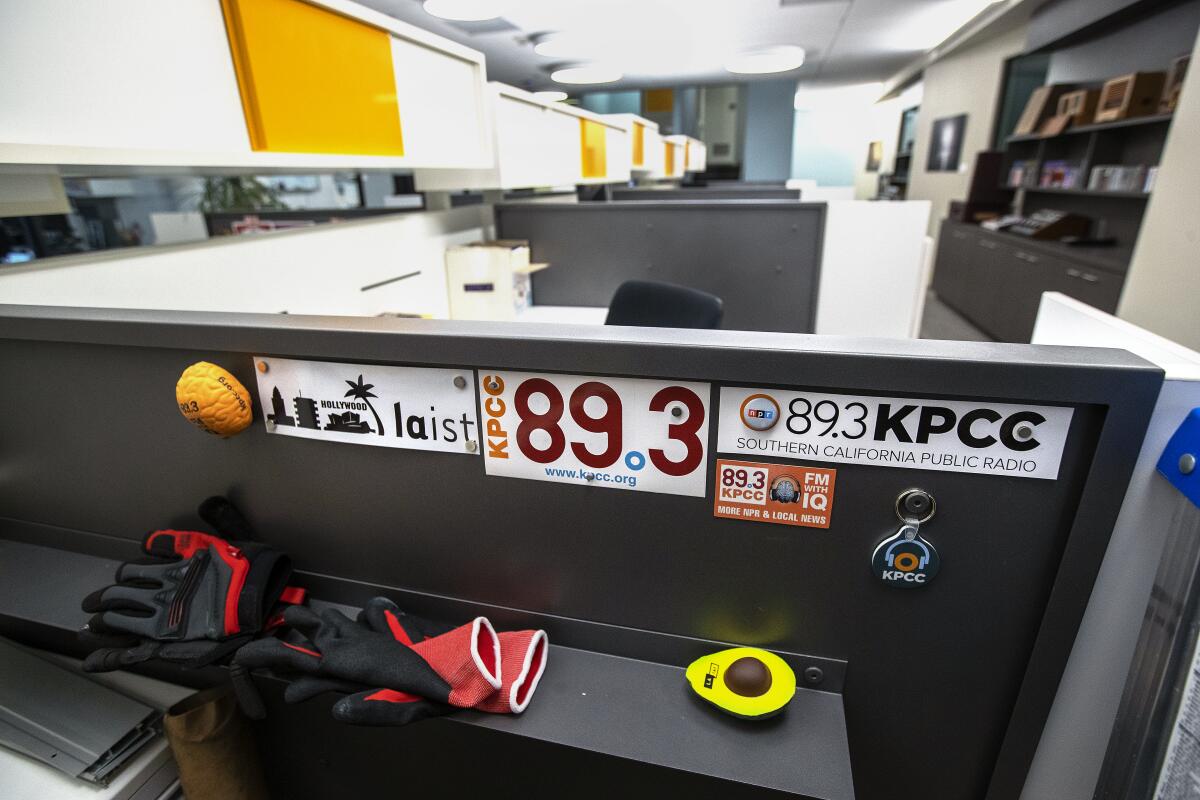
The station’s federal broadcasting license belongs to Pasadena City College — that’s what the “PCC” stands for — which started the station in 1957 under the call sign KPCS-FM as a training environment for students. The students operated a low-watt broadcast from cramped quarters on campus with funding from the college’s board and federal grants from the Corporation for Public Broadcasting.
Since then, the college has acquired a more powerful antenna on Mt. Wilson, enabling KPCC to reach a broad swath of Southern California. But the station struggled to catch up with top public radio competitors KCRW and KUSC.
For the record:
10:25 a.m. Jan. 31, 2023A previous version of this story incorrectly referred to Southern California Public Radio as Southern California Public Media.
In 1999, Pasadena City College’s board of trustees voted to hand over management of the station to American Public Media Group, the Minnesota-based parent nonprofit of Southern California Public Radio.
Listenership boomed under new management, and in 2010, KPCC ditched its on-campus quarters for a modern, $24.5-million broadcast facility in Pasadena, with its off-air fundraising aided by a well-connected board. Today, Nielsen audience data for the Los Angeles market shows KPCC topping public-radio peers KUSC, KCRW and KKJZ.
In 2018, Southern California Public Radio purchased the rights to LAist after the digital publication — part of the Gothamist network — got abruptly shut down by its billionaire owner Joe Ricketts. At the time, the LAist acquisition was reported to have cost as little as $50,000.
“I’m not sure what the figure was, but it didn’t break the bank,” said Scannell, who joined Southern California Public Radio in 2019. “It was actually a good deal for the organization.”
After reviving the LAist.com website, Southern California Public Radio also created LAist Studios to produce podcasts such as “How To LA,” hosted by Brian De Los Santos, which also broadcasts over KPCC’s airwaves.
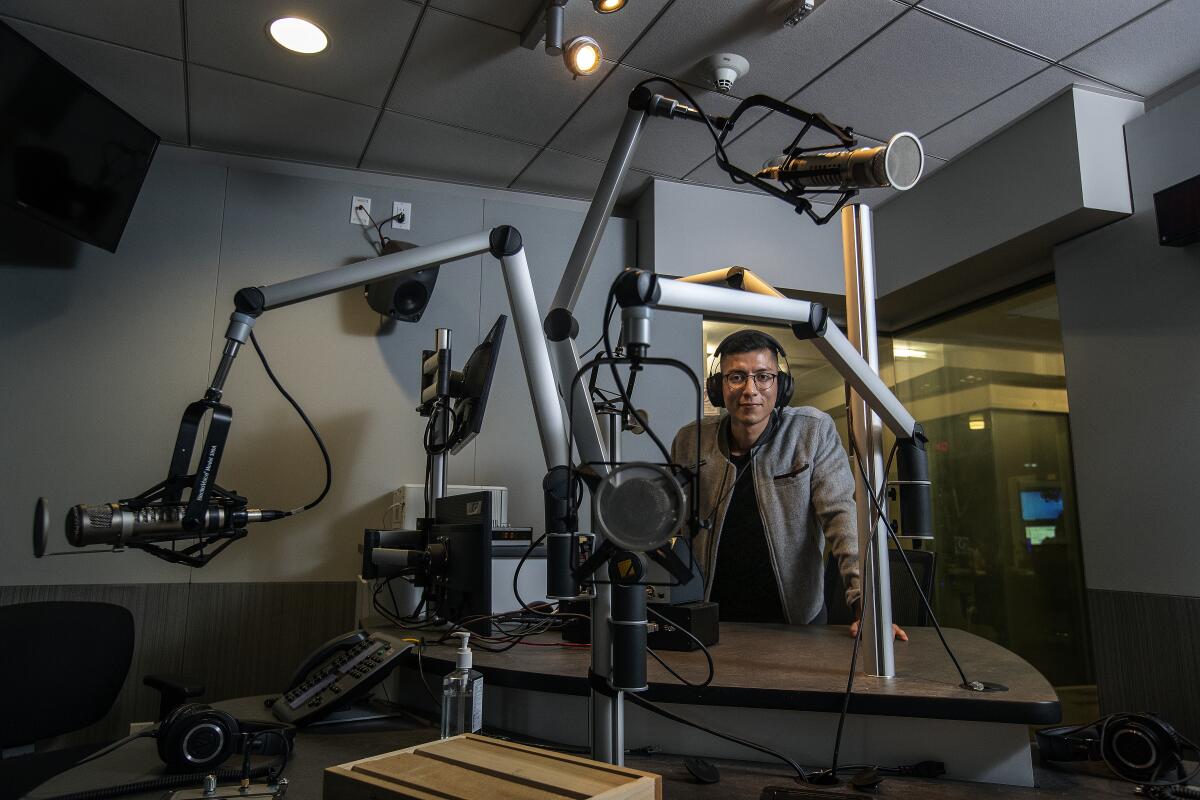
Asked if he had encountered listeners or members of the public who were confused about the relationship between KPCC and LAist, De Los Santos responded, “All the damn time.”
“I think this is going to help us just show up differently and be able to tell people: We’re all now united,” De Los Santos said of the LAist name change. “It’ll be definitely easier to explain to folks where I’m at.”
More to Read
The biggest entertainment stories
Get our big stories about Hollywood, film, television, music, arts, culture and more right in your inbox as soon as they publish.
You may occasionally receive promotional content from the Los Angeles Times.
